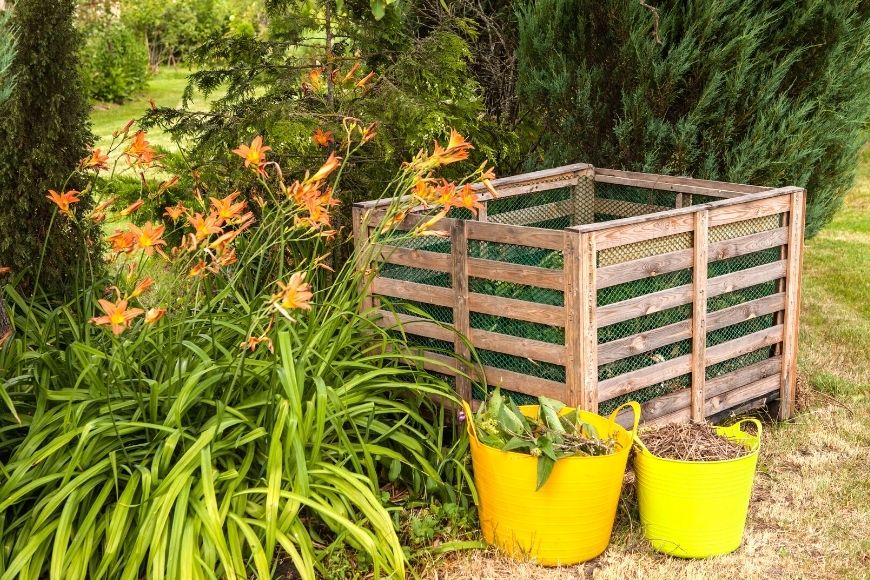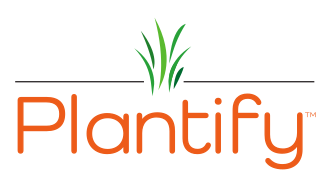
Reusing the green from your garden will add some green to your wallet and lifestyle. When you skip putting your yard waste curbside, you skip the use of fossil fuel used to manage waste while brightening up your garden.
So, before you haul those branches to the curb, keep in mind that there is value hidden in that waste.
Compost Is Gardening Gold
As a gardener, composting becomes second nature. Compositing replenishes the nutrients in your soil as a natural way to feed your plants.
To create nutrient-rich compost, you don’t have to buy an expensive compost bin--there are many that you can DIY with inexpensive materials.
Just be sure you put your bin where it can warm up in the sun and you can conveniently turn it over to mix up the plant matter with the dirt or sand that you add.
How to Create Your Own Compost
When you have plant matter, add it to your compost pile or bin. You can add table scraps after your meals--just avoid any meat, fats, and bones. Some people keep a closed container next to the sink, so it is there when you are ready to do dishes.
Make sure that it gets emptied every day and washed out, that way it won’t have time to develop an odor.
What can you use for compost?
- When you mow your lawn, you should save some of the clippings. Just dump them in as your clipping bag fills.
- If you have a friend with farm animals, you may want to ask for a small load of manure to mix in.
- Pruning your tomatoes? Add those clippings to your compost as well.
- If you still get a daily newspaper, it can be added to your compost, too.
- Raking leaves in the fall? Compost them instead of burning.
- Visit your local fruit stand. Fruit and veggies that are getting tossed, might as well be added to your compost pile.
As you add material, cover each layer with dirt or sand. If it is hot and dry, you may want to add water occasionally. Water that is chlorinated can kill some of the microorganisms in your compost, so if you have a source for non-chlorinated water, use that instead.
If you don’t, don’t worry too much. There should be enough bugs in your compost to quickly reproduce and replace any that the chlorine kills.
When the organic matter is completely broken down, just spread it on your garden or flower beds before you plant, and spade it into the soil.
This will increase the fertility of the soil along with adding many micronutrients that your plants will need to produce the tastiest veggies and voluminous flowers.
Reuse Branches for Wildlife, Mulch, Compost, and More
Trimming back trees or shrubs? You can either run them through a chipper and use them for compost or just pile them up toward the back of your property.
Wood takes longer to break down than most organic waste, so if you want to compost them or use them for mulch, you will need to buy, rent, or borrow a chipper. If you don’t want to do that, just pick an out-of-the-way spot on your property and start a brush pile.
Not only will birds stop by to collect trigs for their nests, but you might be surprised by the wildlife that you will attract. Adding a birdhouse nearby will help increase the odds of a long-term feathered resident.
Want to make even more use of those branches? Twig and branch fences offer a rustic and effective way to fence off your veggie garden or create a garden border.
Let It Rain
Need water for your flower beds and garden? Consider setting up rain barrels and collecting water every time it rains. It is not too difficult or too expensive to run your downspouts into a barrel, then scoop water out as needed to water your roses, tomatoes, and cucumbers.
Just make sure that it is covered so that it doesn’t start breeding mosquitoes.
What Can You Do with Those Grass Clippings?
You can use grass clippings and leaves to retain moisture in your soil. By spreading clippings and leaves between your plants, you reduce the amount of water that evaporates, so you can water your flowers and garden less often.
This will also reduce the time that you spend weeding by inhibiting the growth of things you don’t want growing and as it breaks down and decomposes, it will help to build your soil.
Collect and Sow Seeds
Another way to save is to collect seeds from your plants after the blossoms fade, wilt, then dry out. It is easy to collect from flowers, just pinch or cut off the blossoms after they start to dry out, then keep them in a dry spot to let them finish drying.
With tomatoes and peppers, along with many other varieties of garden fruits and veggies, just remove the seeds as you are preparing them for your meal. Make sure that the seeds are completely dry before you store them, then keep them in a dry, cool place.
You have to remember though, that things can be cross-pollinated, so the plants that you grow in the future, might not look exactly like the plant you harvested the seeds from.
Reusing waste is an easy way to improve your garden while being eco-conscious. As you rake up those grass clippings, skip putting them out for the city to pick.
Instead, gather them to keep your plants’ roots moist and happy. As you begin to reuse your garden waste, don’t be afraid to get creative!
Happy planting!
